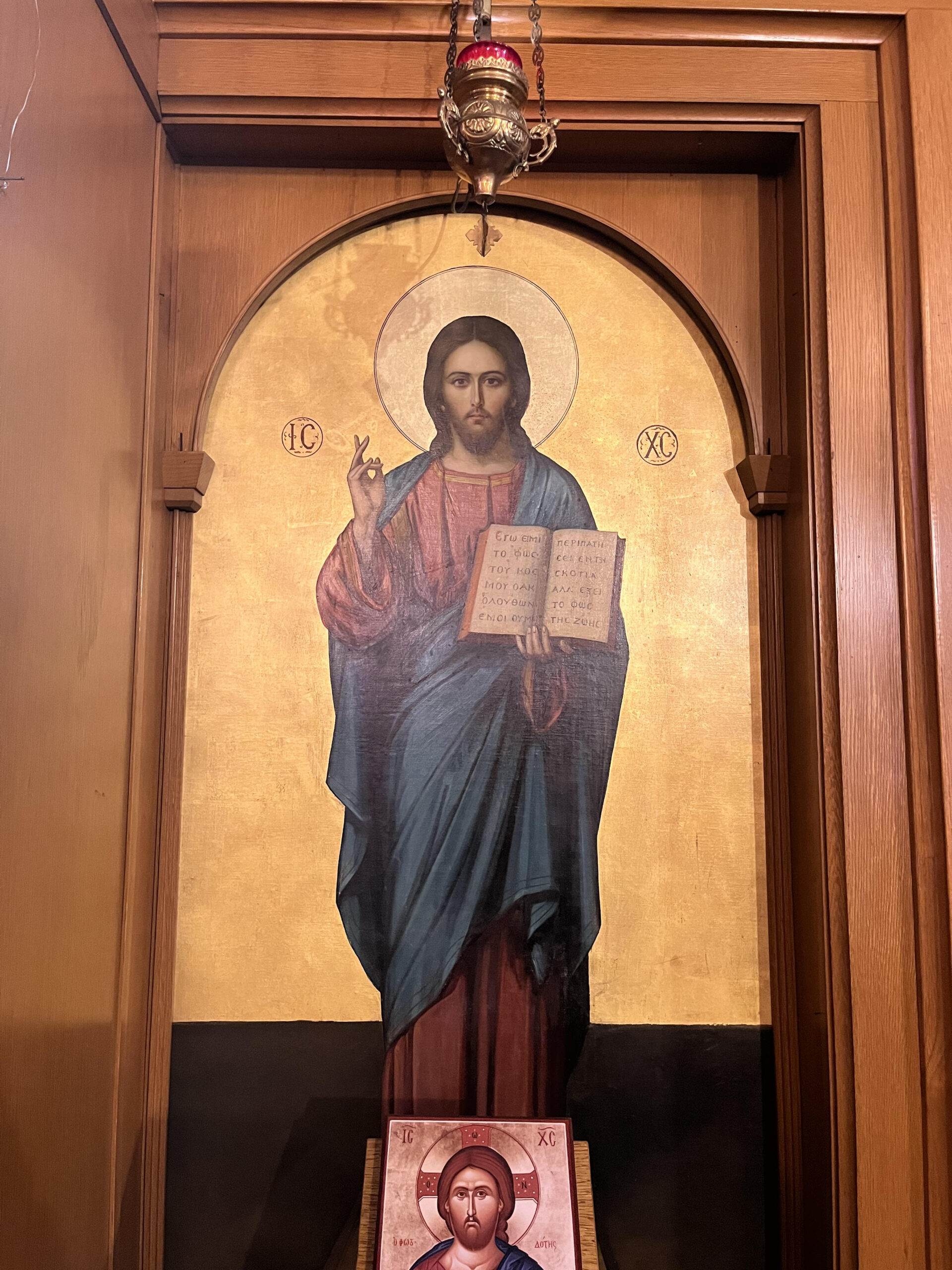So the churches were strengthened in the faith, and they increased in numbers daily.
Acts 16:5
The word “community” is actually not found in the Bible. The word “church” is found over 100 hundred times. The word that we translate as “church” is the word “ekklesia.” However, the meaning of this word is actually “community.” “Ekklesia” is not the church building. The church building is called the “naos” or the “temple.” “Ekklesia” each time it is used refers to the church community.
Community is an important part of our Christian journey. It is not only important to belong to a community but it is actually required that we belong to one. There is a saying “one Christian is no Christian.” We exists as Christians in the context of community. Even monastics who live as hermits periodically come back to the “community” of monks in order to worship and to commune. There is no Holy Communion outside of the context of a community. When a priest goes to the hospital to give Holy Communion to someone who is sick, even if it is only just him and patient, they have a “community” of two. There are no sacraments outside the context of community. A priest cannot go to celebrate the Divine Liturgy alone. There must be at least one other person present, so that there is a “community.”
Now that doesn’t mean there isn’t room for private prayer and devotion. These things are critical. We can and should have a private spiritual life, outside of the church community. However, it is equally as critical that we have a spiritual life inside the confines of a church community. Here are several reasons why:
1. First and foremost, Holy Communion can only be received in the context of community.
2. Sitting in a Bible study, even if it just a few people, is a community of people who aspire to learn more about the faith.
3. There is strength in numbers—the ability of an army of volunteers is exponentially more when several people step up to serve.
4. We encourage one another through community. Perhaps today I need encouragement, and tomorrow you do. We are here for each other to provide the encouragement needed to keep going.
5. We learn best in community. What kind of student would we have been if we didn’t have a teacher, or classmates going through the same thing we are?
6. There is power in prayer. When many prayers are joined, there seems to be great power in that. When we celebrate the Divine Liturgy and 300 people lift up a concern together, there is a real power in that.
7. A community serves as a home base for both learning and service (which we will discuss later in the week). There is no way that a priest can teach each parishioner one at a time (though it does happen occasionally in confession). In a learning context, people come up with questions that are probably on the minds of others who are afraid to say them. When one person jumps in, others seem to follow in a community. Regarding service, most service projects require more than one person. Thus, there is an ability to serve in a greater way when we serve in community. Think about singing in church—when one person sings, it can sound good. When a choir of people are singing, it always trumps the soloist.
8. Everything we do in worship points to community. The priest invites us to “let US pray to the Lord.” The response is offered not by the chanter or the choir, but by the people. Stewardship happens in the context of community. There is no one who can do every job in a church community—someone sings, someone else cleans, someone else teaches, someone else oversees the finances, etc.
9. One more note about community and that is that the church community is part of a greater community. The church is supposed to serve the town in which it resides. We are supposed to feed the hungry of the community, and take the lead on other charitable causes. One person would have a hard time making a dent in the greater community, but a church of many people sure can.
This Lent, think about your involvement in the church community. Think about not only how often you worship, which we discussed yesterday, but your stewardship to the community. Are you offering talent to help the church community work? Are you offering stewardship so that the community not only can sustain itself but so there is extra to give to charitable causes? When Jesus said to Peter “You are Peter and on this rock I will build my church,” (Matthew 16:18) He wasn’t referring to a building. He was saying that on Peter, He was going to build a community that would be so strong that not even the gates of hell can prevail against it. The community is supposed to be like a powerful wave, a tsunami (in a good way) of force against evil, loneliness, lack of purpose, poverty, and everything in the world that takes away joy and takes us away from God. This is what the church is supposed to be. Sadly, most churches make only small ripples in the greater community. Imagine how the church could change the world if our communities resembled powerful waves!
Lord, thank You for establishing the Church, for not leaving us to fend for ourselves but for encouraging us to belong to a community that can encourage us in our Christian walk. Lord, help me to not only identify where I can best serve in my church community, but give me a heart to serve in my community. Help my church and its stewards to think not only about the sustenance of the community but charity to the greater community. Help me to trust You more, so that I can give more sacrificially and joyfully, trusting that you’ll meet my needs even when I sacrifice the things I may need—time, talent, treasure—and most important, help me to remember that these things are all blessings from You. Amen.
Practical Idea for Lent: Evaluate your involvement in the church community. Evaluate whether there is a ministry you could offer a talent to.

